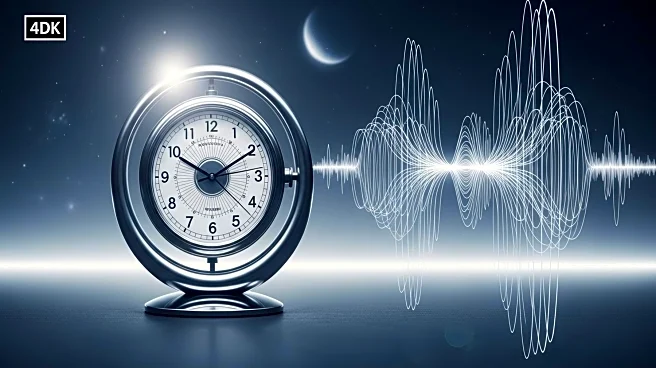What is the story about?
What's Happening?
A new study by Reed Essick, a physicist at the University of Toronto, suggests that daylight savings time affects the detection of gravitational waves by observatories like LIGO. The research highlights that changes in human activity due to daylight savings time can introduce non-trivial noise into the data collected by gravitational wave detectors. This unexpected source of interference is linked to shifts in operational workflows and physical activity at observatories, which can alter the sensitivity patterns of these instruments.
Why It's Important?
The study underscores the complexity of accurately detecting gravitational waves, which are crucial for understanding cosmic events like black hole mergers. The influence of daylight savings time on data integrity suggests that human factors can introduce biases in scientific observations. This revelation calls for a reevaluation of how data is collected and analyzed in gravitational wave astronomy, potentially impacting future research and the development of more reliable detection methods.
What's Next?
Addressing the impact of daylight savings time on gravitational wave detection will require innovative solutions, such as space-based observatories that eliminate human presence. The study encourages the use of multi-messenger astronomy to cross-check results and mitigate biases. As the field of gravitational wave astronomy grows, researchers will need to account for subtle effects that could influence data accuracy, ensuring that scientific findings remain robust and reliable.















